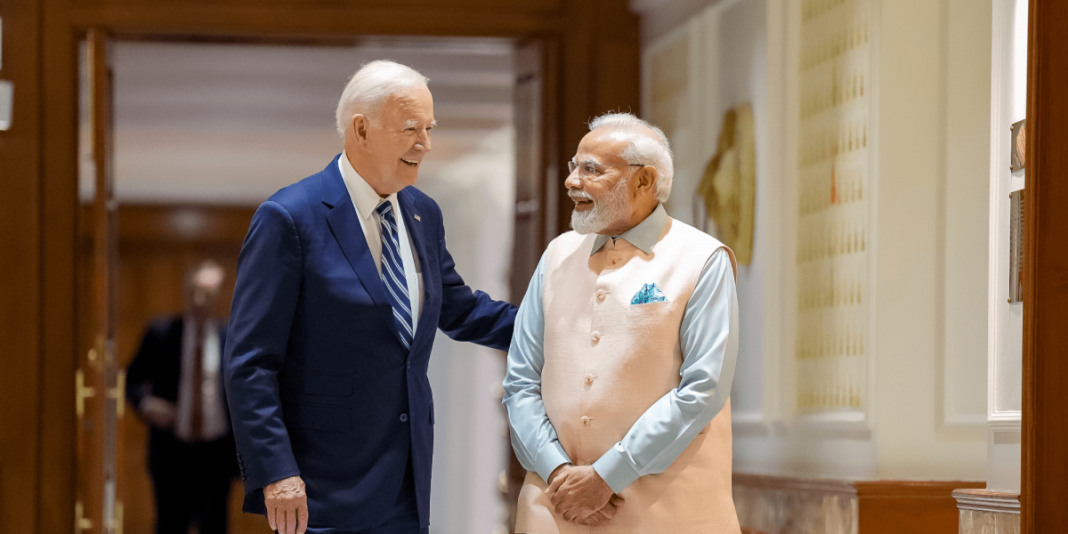DM Monitoring
NEW DELHI: Is India a banana republic or some sort of seriously dysfunctional state where a senior officer working for the country’s top intelligence agency can plan an assassination on American soil without his superiors knowing and approving the ‘mission’? This is the question the Modi government needs to answer as it ponders over its response to the Washington Post’s latest story on the plot to kill New York-based Khalistan campaigner Gurpatwant Singh Pannun.
Though Pannun is accused of various offences in India and has also been designated a terrorist by the Indian government, the Ministries of External Affairs and Home Affairs have made no attempts to get the United States to extradite him. However, according to a US federal indictment unsealed last November against an Indian citizen, Nikhil Gupta, a senior intelligence official in Delhi sought to have Pannun killed.
The indictment deliberately chose to keep the official’s name hidden though the description of his duties in India made it clear that he worked for the Research and Analysis Wing, India’s external spy agency. Through its reporting, the Washington Post has now named the official as Vikram Yadav and noted that he has now been sent back to the Central Reserve Police Force from where he had been drafted to work in R&AW.
The story notes:
“In reports that have been closely held within the American government, U.S. intelligence agencies have assessed that the operation targeting Pannun was approved by the RAW chief at the time, Samant Goel… U.S. spy agencies have more tentatively assessed that Modi’s national security adviser, Ajit Doval, was probably aware of RAW’s plans to kill Sikh activists, but officials emphasized that no smoking gun proof has emerged.”
Modi and Doval are now in an awkward position. To firewall themselves, they will have to peddle the damaging fiction that Goel – as head of R&AW – was pursuing a ‘rogue’ mission and that they run such a slipshod government that such a thing was even possible. This is exactly what Pervez Musharraf had to say when Osama bin Laden was found and killed in Abbotabad, a stone’s throw away from a major garrison of the Pakistan army – that rogue officers were responsible, and not the Pakistani government.
Such a claim – as and when it is ever made – would be hard to digest, not least because of Goel’s proximity to Doval – which came into the public glare when the Modi government ousted former Central Bureau of Investigation director Alok Verma at the end of 2018.
At the time, Verma had been investigating a corruption case against fellow CBI officer Rakesh Asthana and his associates in Dubai, some of whom had been in close contact with Goel. Leaving aside the taint of running a government which apparently had no knowledge of what the R&AW chief was doing, the Pannun case is likely to bleed India over the long haul, even after Modi and Doval are out of office. For now, the United States appears to have decided not to take the evidence it has gathered of high level involvement in the assassination plot to a logical conclusion because of India’s value as “a nation seen as increasingly indispensable in the global competition with China.” Thus, the US administration has settled for high level assurances that the matter will be taken seriously and accountability fixed. However, US officials told the Washington Post that Vikram Yadav “could still be charged and other penalties imposed if New Delhi fails to follow through on these commitments.”
What does this threat mean in concrete terms?
The US knows that the Modi government has no intention of fixing accountability because an official committee set up five months ago to probe the case has so far not completed its ‘work’ nor taken any action. From all accounts, the US is fine with that as long as it is confident that no further violations of its sovereignty are being planned. By keeping the file open, however, and reserving the option to indict Yadav and others higher up the chain of command, it has provided itself with a formidable lever with which to ensure the Indian government’s cooperation on any issue it chooses to prioritise. In the face of an American demand that it finds unpalatable, a future Indian government – and not just the current one – will have to factor in the reputational and other costs the US could impose by turning up the temperature in the Pannun case by a couple of degrees. With his politically motivated recklessness, Modi has saddled the Indian state with a damaging IOU that Washington will seek to encash over and over again. Modi wants to be known as a leader who kills the ‘enemy’ in their own house. But what he has done is make his own country more vulnerable.


